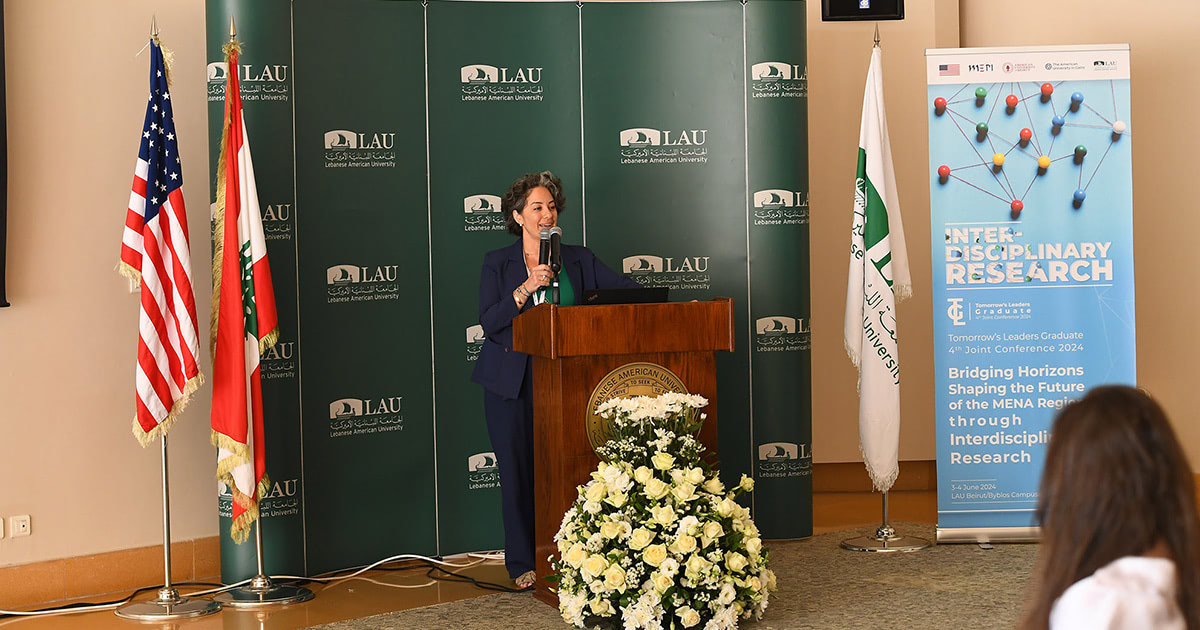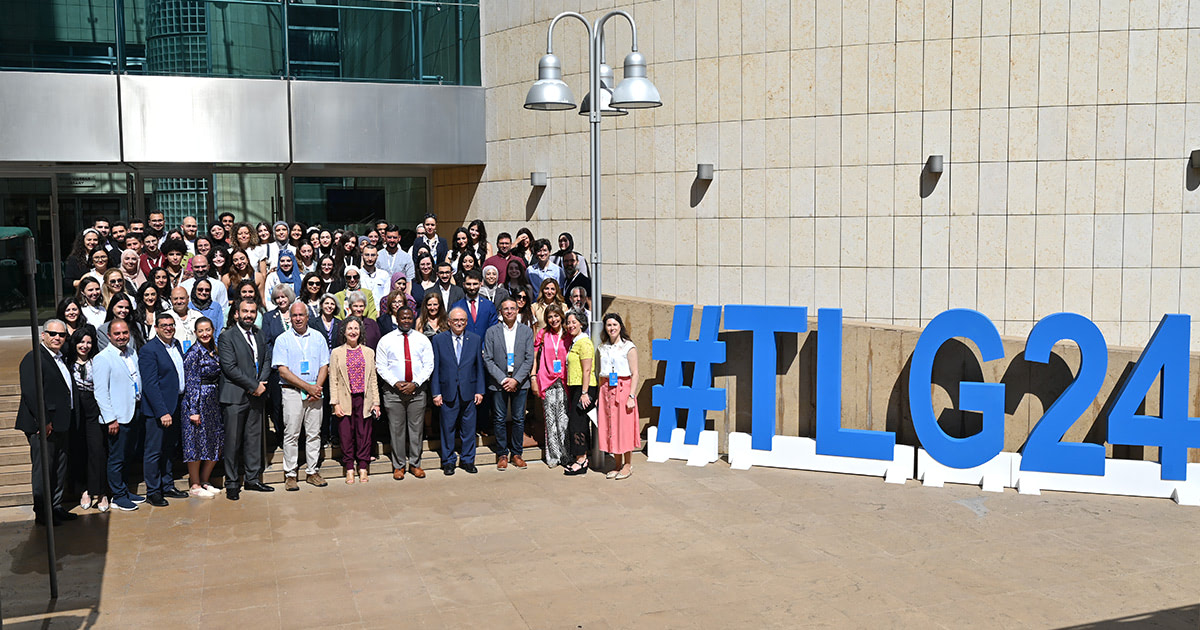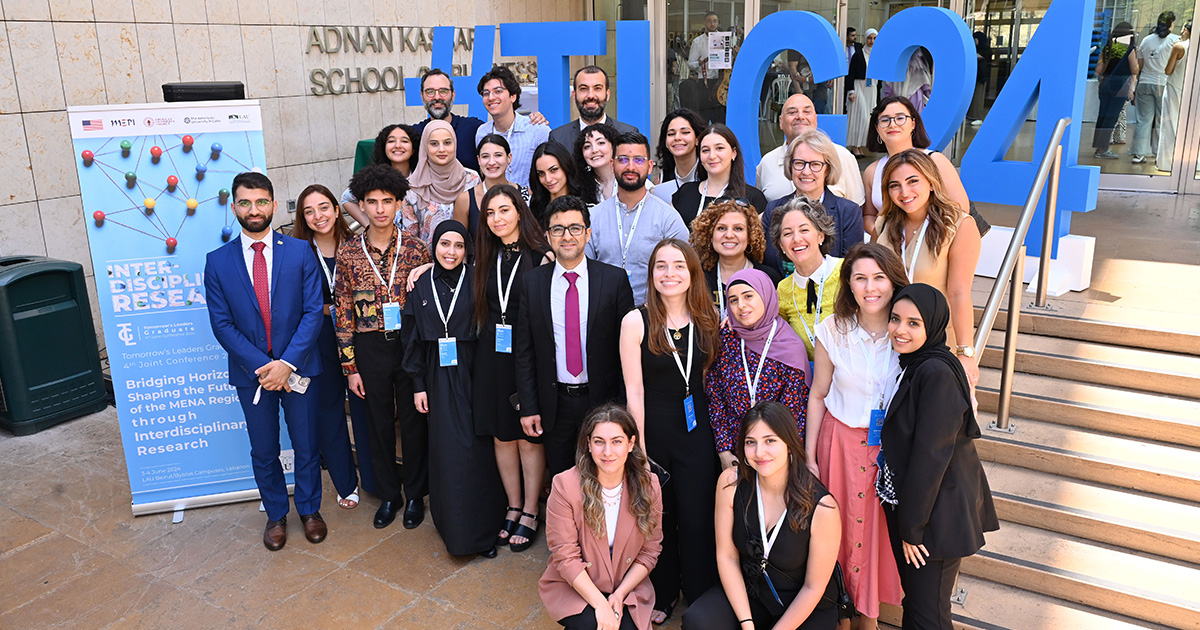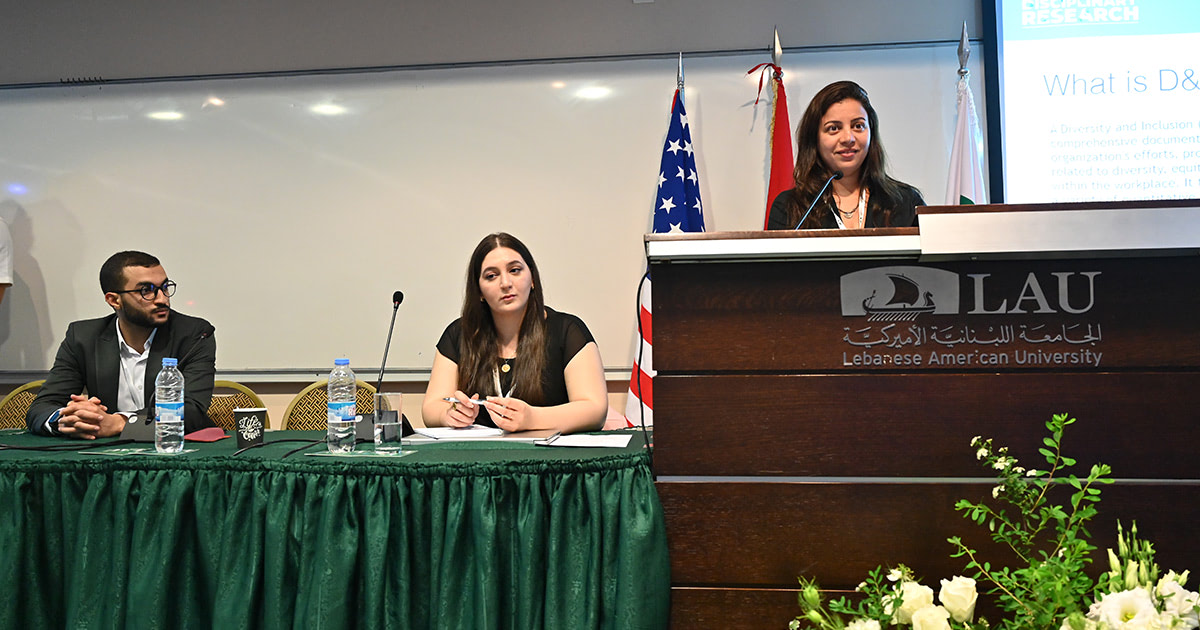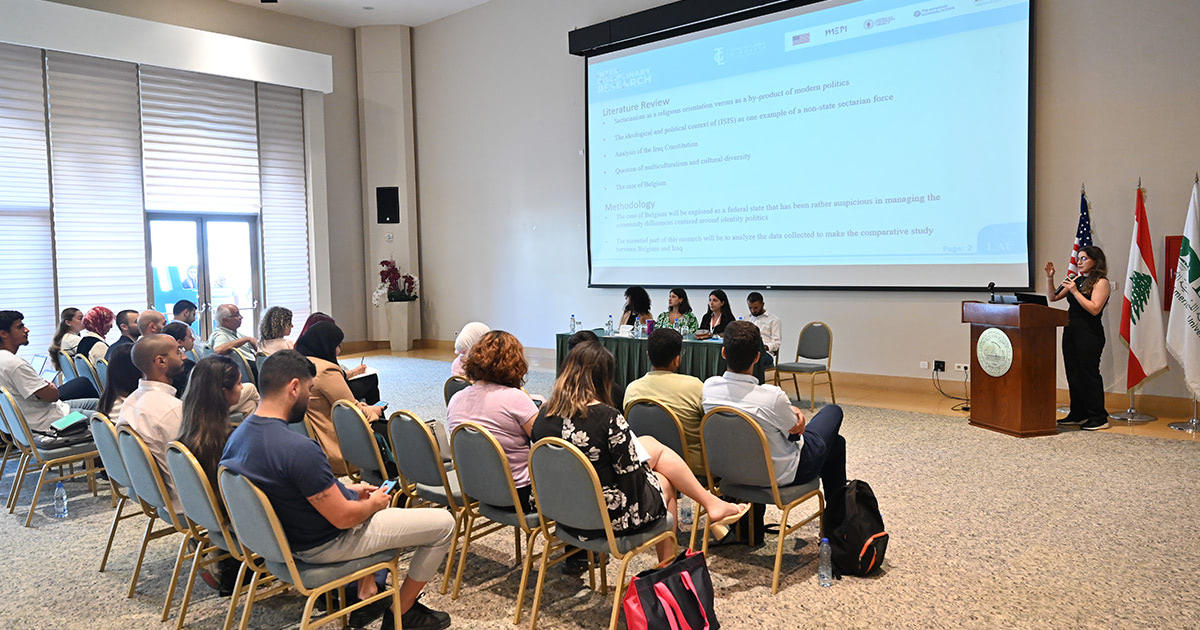Tomorrow’s Leaders Pioneer Interdisciplinary Approaches for a Brighter MENA Future
The TLG 4th joint conference empowers interdisciplinary research and fosters collaboration among scholars and students from various institutions to drive positive change.
As the MENA region continues to face grave issues ranging from political instability and economic difficulties to environmental crises and social inequalities, finding effective solutions requires a comprehensive approach that draws on practical knowledge from different fields.
Highlighting the crucial role of interdisciplinary research in realizing a sustainable and prosperous future, LAU hosted the Tomorrow’s Leaders Graduate Program (TLG) 4th Joint Conference, titled Bridging Horizons: Shaping the Future of the MENA Region through Interdisciplinary Research—a two-day lineup of panel discussions featuring a diverse assembly of researchers, students, scholars and advisors.
The conference, held on June 3 on the Beirut campus and June 4 on the Byblos campus, was a collaborative initiative by the program—funded by the U.S.-Middle East Partnership Initiative (MEPI) at the U.S. Department of State—in conjunction with the American University of Beirut (AUB) and the American University in Cairo (AUC).
With 12 panel discussions and 40+ research paper presentations, the conference allowed TLG scholars from the three institutions to share their interdisciplinary research with a wider audience and underline its impact on fundamental issues such as diversity and inclusion, gender issues, peace and security, and cultural dynamics and identity.
In his opening speech, LAU President Michel E. Mawad noted how “the conference demonstrates the impressive fruits of cooperation and joint work, and underscores the increasing importance of interdisciplinary research where perspectives merge, research tools mix, and lines of expertise converge to produce integrated solutions for a part of the world in due need for them.”
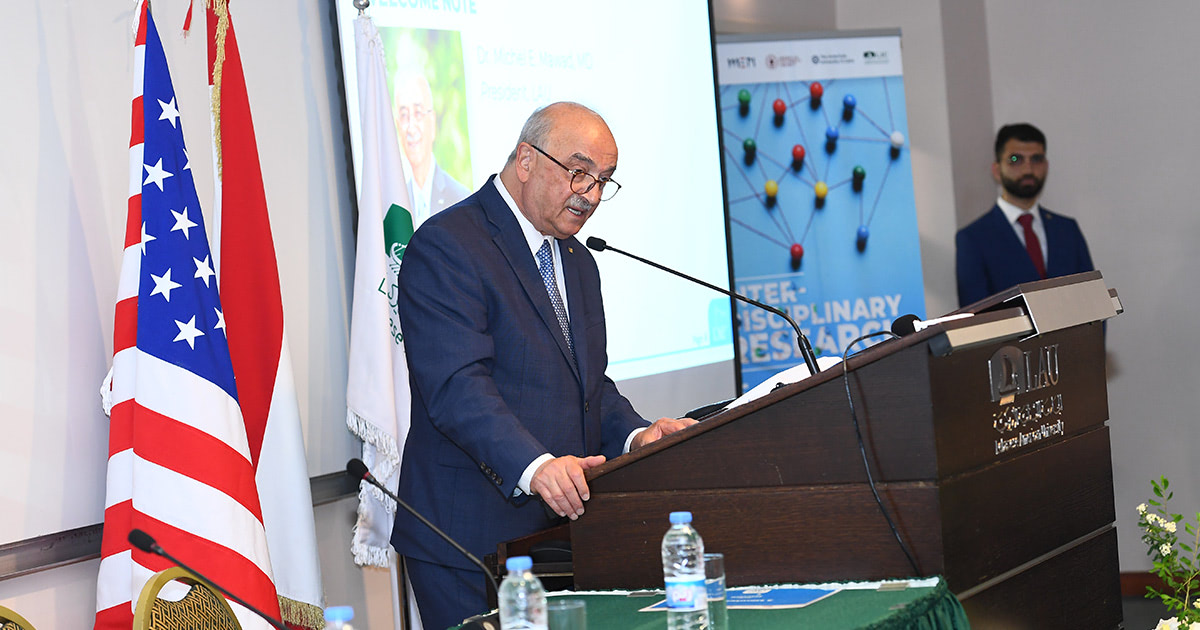
By exploring the interconnected nature of the region’s problems, the conference “in turn addresses global and local perspectives on key themes that shape our lives altogether,” noted Master of Ceremonies and alumnus of the program Ali Jaafar (BA ’21; MA ’23).
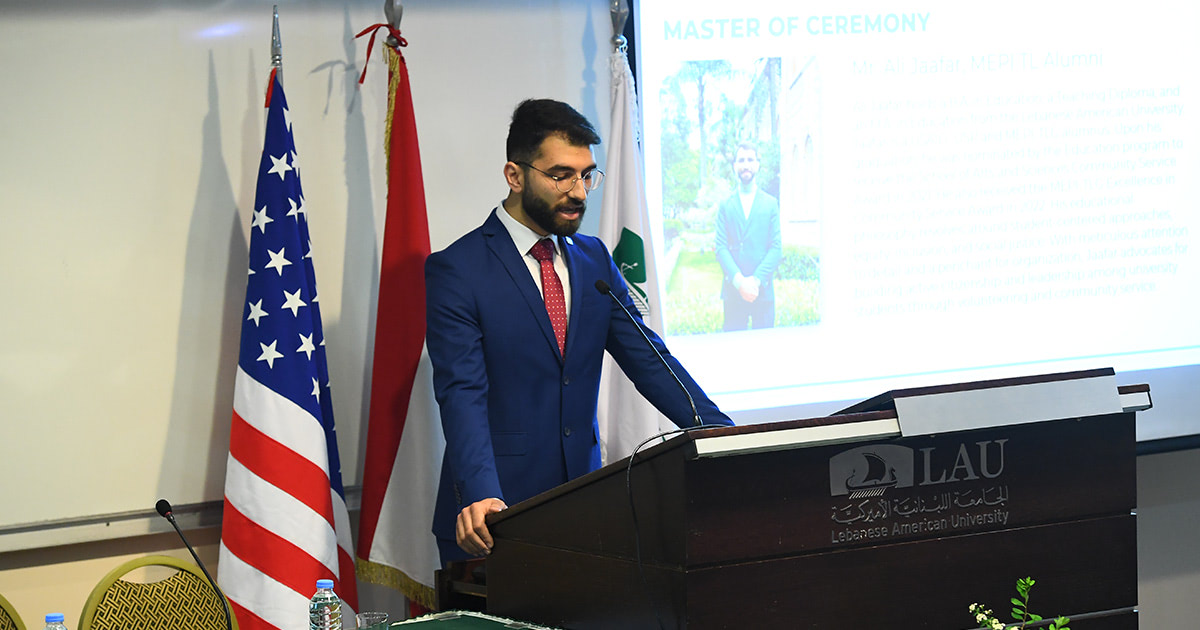
The event was particularly significant for LAU students as it facilitated networking opportunities with peers and experts from other leading institutions. This exposure offered them essential insights into different research methodologies and encouraged potential collaborations that could benefit their academic and professional careers.
The thoroughly researched student presentations, according to Associate Professor at AUC Hakim Meshreki, served to underscore the emergence of “well-rounded future leaders who will drive transformation in our region,” he said.
LAU Computer and Communications Engineering alum, Fulbright scholar, and current CEO and Founder of CardioDiagnostics Ziad Sankari (BS ’07) shared how LAU enabled him to make a tangible impact globally, despite facing challenges.
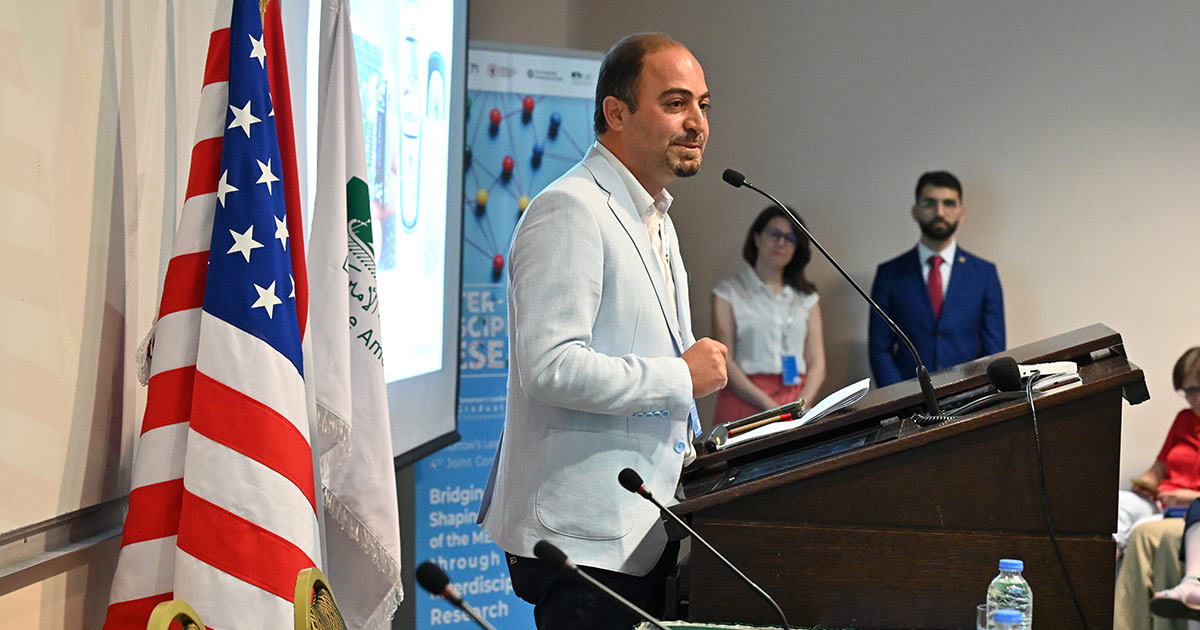
“Having a strong foundation in education and research has propelled me to local and international recognition, even through the halls of the White House,” he said, referring to the recognition he received from former US President Barak Obama in recognition of his innovation and entrepreneurship.
According to David Lewis, MEPI coordinator at the US Embassy in Beirut, enabling the next generation of scholars and leaders takes collaborative efforts. By providing a platform for young researchers to present their work and engage with established experts, “the young generation remains empowered to uphold the potential to drive sustained change and innovation in the MENA region,” he said.
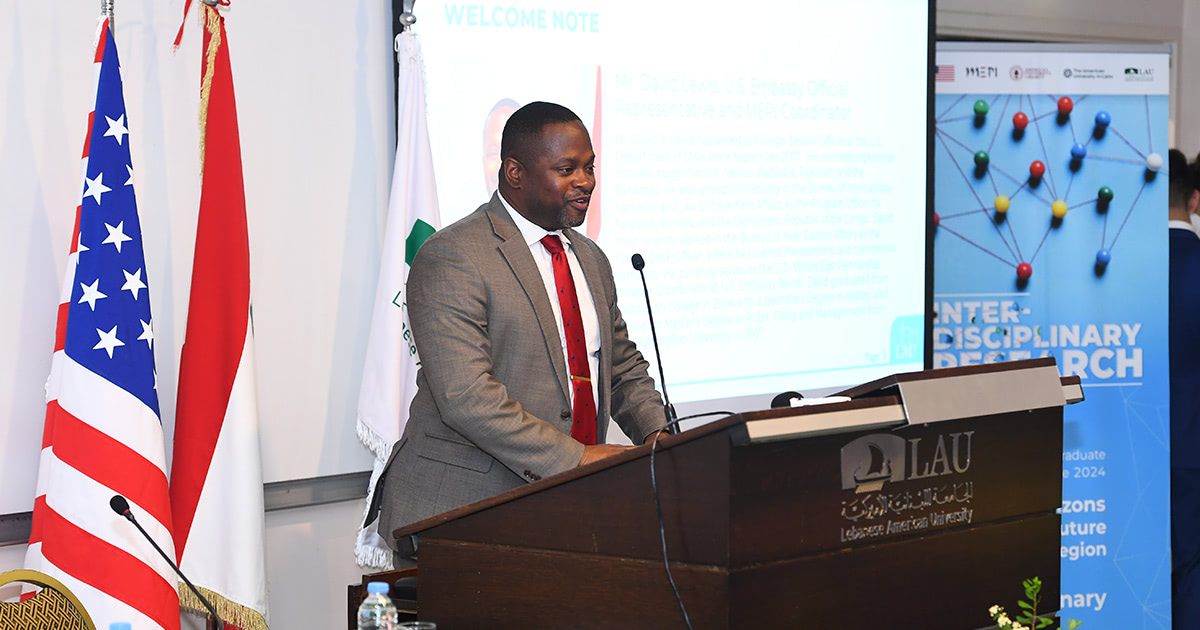
From another standpoint, the conference allowed faculty and administrators to observe the transformation the scholars underwent from the beginning of the MEPI-TL program to their graduation. AUB Professor Rabih Talhouk expressed “a heart-warming feeling to witness how the students’ involvement in teamwork, volunteering in community service, civic engagement, and their research has sharpened them as individuals and scholars.”
Associate Professor and MEPI-TLG Program Academic Director Hussein Hassan concurred, noting that “we are building a network of skillful and knowledgeable future change-makers.” For him, interdisciplinary research is not just a trend, but a necessity, as it brings fresh perspectives and innovative ideas that can contribute to a better future.
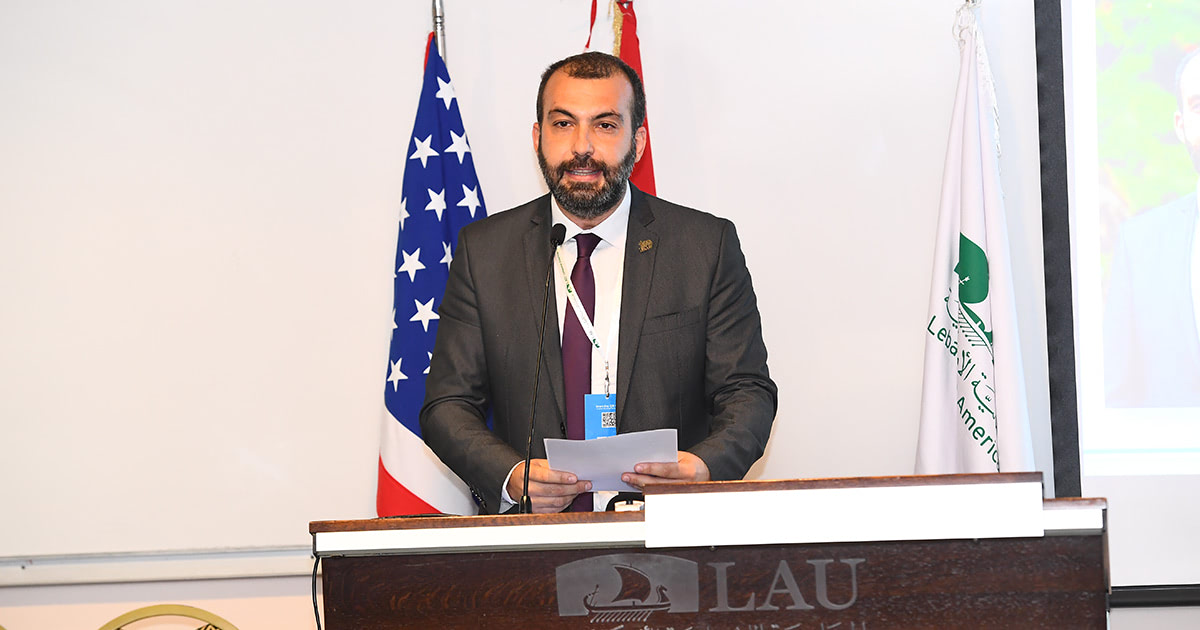
“We’re thrilled to host this year’s conference on our campus, especially as LAU pioneered the program in 2018, becoming the first university in the MENA region to do so,” said Executive Director of the program Dina Abdul Rahman. “It feels like coming full circle. Each year brings new emerging scholars who build upon the foundations laid before them.”
